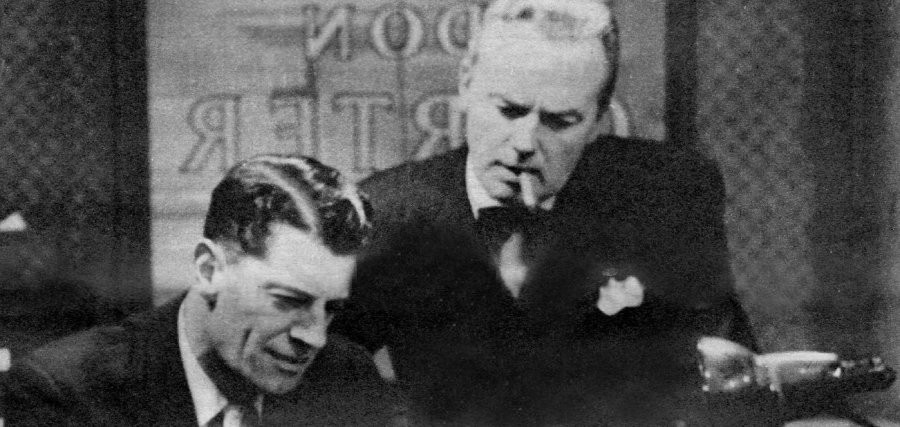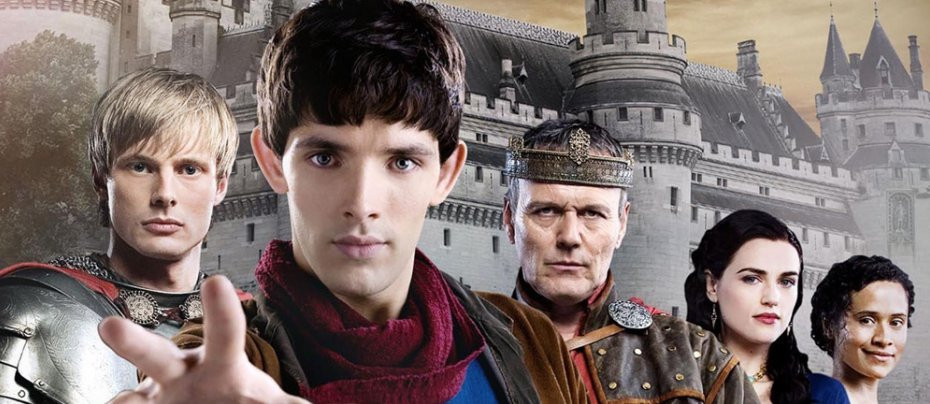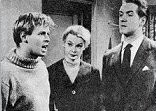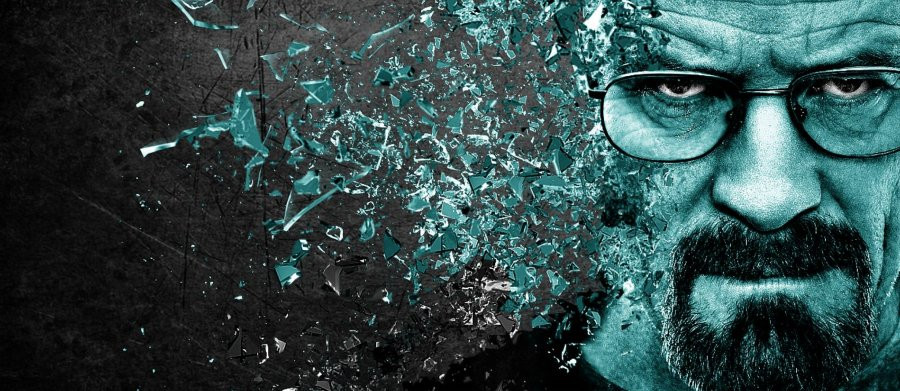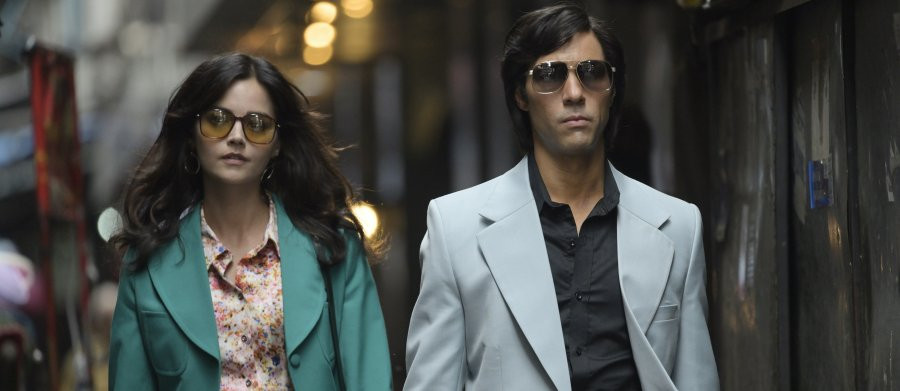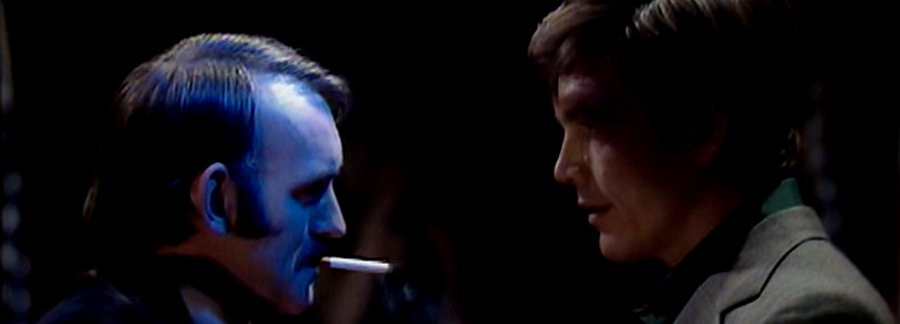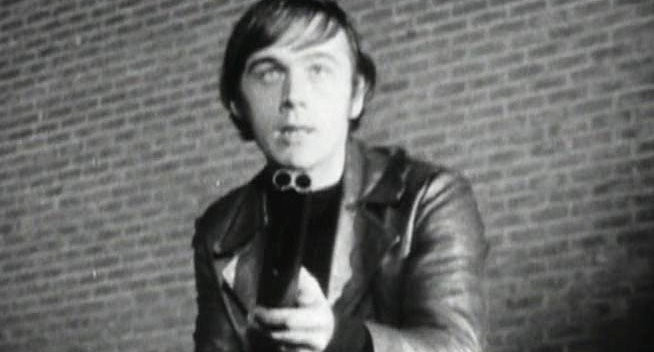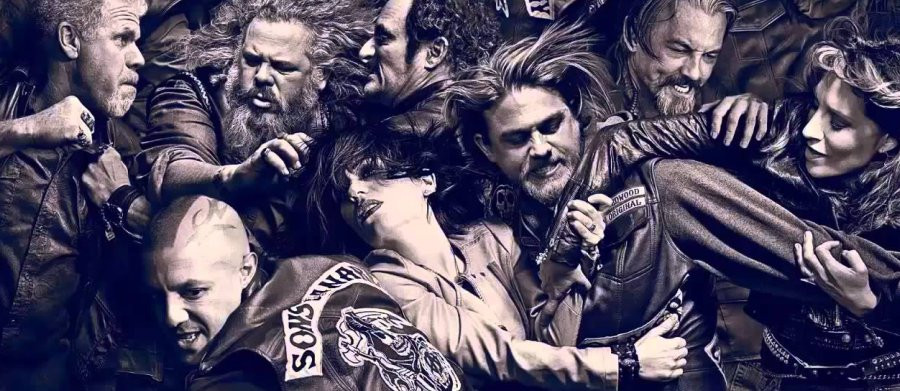
Sons of Anarchy
2008 - United StatesReview: John Winterson Richards
If Sons of Anarchy was never actually pitched to the studios as "Hamlet in the Hells Angels," it is only because the average studio executive would probably have no idea who Hamlet is and would doubtless have responded by asking about his latest ratings.
The word "Shakespearean" has certainly been applied to the show, sometimes even by people who know Shakespeare, which is not something one can say about many American television dramas, and not what one expects of a show about an "outlaw" motorcycle club.
While the central storyline of 'Sons' does indeed owe a lot to 'Hamlet,' the whole structure owes more to two more recent dramas, The Sopranosand Deadwood.
It was The Sopranos that gave American television drama the courage to let the viewers enjoy - at a safe distance - the adventures of some interesting but truly ghastly people they would not want in their own lives for a moment. Make no mistake, everyone in Sons of Anarchyis tainted by evil and corruption, so it is the height of skill to arouse sympathy for characters who are all, considered objectively, very unsympathetic. We may not care for them much, but we come to care about them and about what happens to them. A healthy dose of dark humour helps a lot.
From Deadwood came a number of cast members and a willingness to explore the seedier subcultures hidden beneath the American Dream, each with its own vocabulary, values, traditions, and hierarchies.
Although America has always boasted of her multitude of cultures, this does not mean she is a "melting pot" where they all merge together: she would not remain a land of many cultures if they did. There is, on the contrary, a single mainstream culture and a host of subcultures, many ethnically based, populated by those who feel, rightly or wrongly, that they are excluded from the mainstream.

One of the most obvious examples is the Mafia, as seen in The Sopranos. Others include inner city street gangs, Latin American cartels, and white racists such as the "Aryan Brotherhood" - sanitised versions of whom appear as antagonists and occasional allies in Sons of Anarchy.
It is the predominantly white "biker" subculture that is at the heart of 'Sons.' This has both light and dark sides. On the one hand, there is a libertarian love of the freedom of open spaces which, at least in the United States, taps into the mythology of the Old West. Think of 'Easy Rider' or George A Romero's 'Knightriders.' There is indeed something very attractive about this vision, even if it is unrealistically romantic.

On the other side are the "one per centers" - so called after the claim that 99% of American motorcycle club members are law abiding rather begged the question "Then what about the other one per cent?"
These are the "outlaw" motorcycle clubs - criminal biker gangs. The eponymous Sons of Anarchy are to all intents and purposes a highly glamourised version of the real life "Hells Angels," the most (in)famous of the "outlaw" clubs. David Labrava, who plays "Happy," the Club's Sergeant-at-Arms, is himself a former "Angel" and doubled as technical adviser to the show.
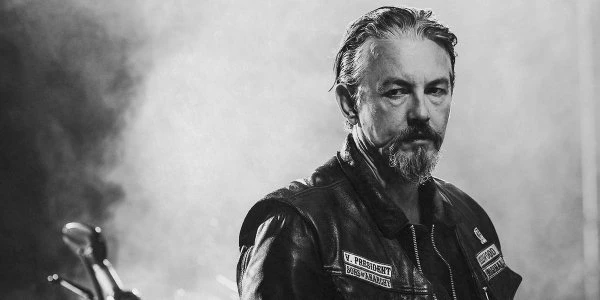
With his help, the writers succeeded in developing a highly textured community, which is part fictional and part "Hell's Angels," as the background to the story. Its depth is apparent in details like having its own jargon that is thrown around casually, usually with little explanation. So the Sons of Anarchy Motorcycle Club Redwood Original (SAMCRO), the founding Chapter of the Club, is generally known as "Sam Crow," and "Meeting Mister Mayhem " is being killed.
While "Hells Angels" are known to have been involved in a number of very serious criminal activities, their real life operations are far from the fictional international criminal conspiracy which has SAMCRO as an important hub. SAMCRO's intervention in the complex politics of Northern Ireland would be hilarious if it was not sadly typical of the ignorance of too many American writers and producers on that subject.

Beneath all the increasingly hard to follow business and legal deals there is still a simple tale of three people, one Shakespeare would recognise: after the death of a great man, his widow marries again, and their son begins to wonder if she and her new husband had a hand in his father's death.
In this case, the great man is the Founder-President of SAMCRO, and his son, Jackson "Jax" Teller, now Vice President of the Club under the Presidency of his stepfather, encounters not his father's ghost but his memoirs. He discovers that Teller Senior inclined to the more benevolent vision of biker culture, not to the violence and crime that now defines SAMCRO.
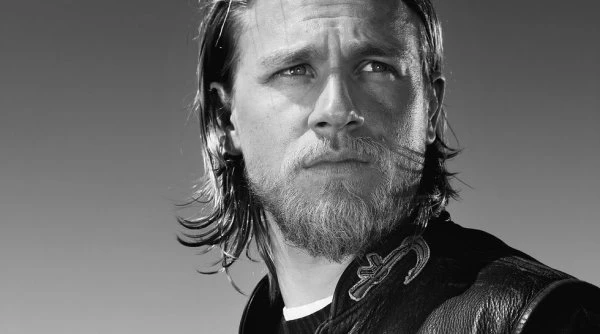
Unlike the annoyingly indecisive Hamlet, Jax is a natural leader and a ruthless man of action, increasingly determined to take over the Club and take it back to what his father intended. His tragedy is that he finds the ruthlessness he employs to that end takes him even further from his father's dream.
He finds that lying comes ever more easily to him until it is hard even for him to know what is a lie and what is the truth. When Jax fixes his gaze on someone and asks them to trust him, we are never entirely sure what is going on behind those honest, wide open eyes, even if our knowledge of previous occasions suggests that trust would be unwise. We begin to wonder if he is in fact a psychopath. British actor Charlie Hunnam gives a performance of extraordinary versatility and subtlety for a young man, pulling no punches about the character's moral ambiguity while retaining the viewer's sympathy. It is no surprise that he has since gone on to leading roles in major feature films, but in none of them is he as good as he in 'Sons.'
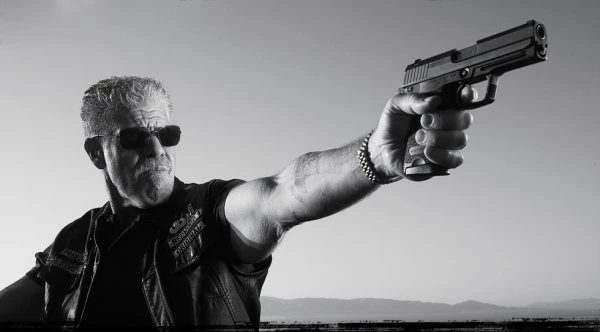
It is hardly a surprise that Jax turns out as he does when we see his role model and rival, his stepfather, Clay Morrow. There is no moral ambiguity about Morrow: he is beyond amoral, beyond immoral, beyond thinking in terms of morality at all, an alpha male consumed by an animalistic will to power. It helps that he is played by Ron Perlman, an endlessly fascinating actor who has combined unconventional looks with strong personal magnetism in an incredibly wide range of memorable leading, supporting, and character roles, from 'Beauty and the Beast' to 'Hellboy,' including multiple collaborations with highly respected feature directors Guillermo del Toro and Jean-Jacques Annaud. It says something that he does some of his best work in 'Sons,' especially when Morrow exudes a superficial charm that dominates all around him.

Yet even Morrow is surpassed in ruthlessness by his wife, Gemma, played by Katey Sagal, who happens to be married to executive producer, head writer, and showrunner Kurt Sutter. If this had any bearing on her casting, it is more than justified because she offers possibly the most compelling portrait of a powerful woman since Sian Phillips as Livia in I, Claudius. At the risk of mixing Shakespearean metaphors, she is less Hamlet's mother than Lady Macbeth, determined and uncompromising about what she wants - in Gemma's case, the maintenance of her own rather egotistical vision of her family and the Club that she sees an extension of her family.
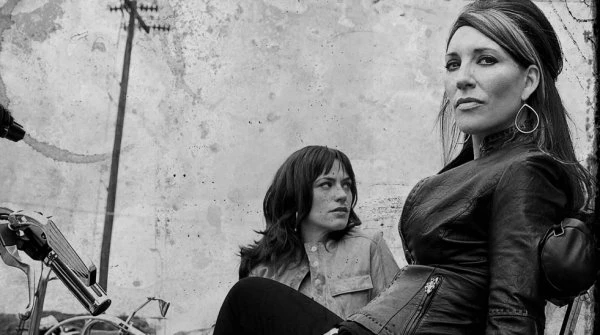
The irony is that she can never be a full member of that all male Club. The official members include the avuncular Elvis impersonator Bobby (Mark Boone Junior), the sinister clown Tig (Kim Coates), the relatively stable Chibs (Tommy Flanagan), and the tragically loyal Opie (Ryan Hurst). In nods to the show's antecedents, Drea de Matteo from The Sopranosis the drug addict who bears Jax a son and Dayton Callie from Deadwood is the corrupt and ineffectual Chief of Police of Charming, the innocuously named town that serves as SAMCRO's base.
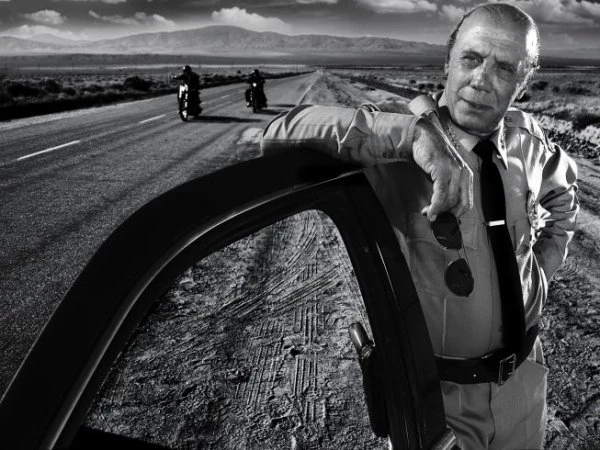
Jimmy Smits, Adam Arkin, Titus Welliver, James Cosmo, Danny Trejo, Mitch Pileggi, and showrunner Sutter himself are among those who turn up to add to the testosterone heavy atmosphere. Robin Weigert and Kim Dickens, both also from Deadwood, provide a little feminine balance. Hal Holbrook makes a typically classy appearance as Gemma's father.
Yet, for all its carefully drawn background and texture, 'Sons' remains the Tragedy of Jax Teller, a man who, lacking a clear moral compass of his own, struggles to break free of the malign influence of the two powerful people who made him what he is - and, in doing so, becomes them.
An ongoing "spin off" show, Mayans M.C., about the Sons' Latino rivals turned allies, inherited much of that background and texture, but lacks the human drama of that central triangle. While it is interesting in its own right, especially in its introduction to another subculture, it has never, perhaps for reasons of racial sensitivity, had the courage to explore the heart of darkness as Sons of Anarchy did. Few shows ever will, especially in the current climate.
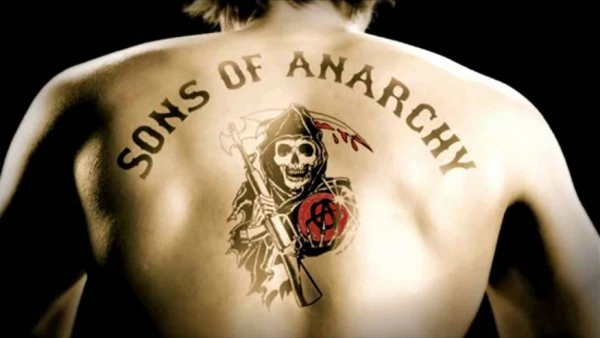
Seen this show? How do you rate it?
Seen this show? How do you rate it?
Published on March 6th, 2020. Written by John Winterson Richards for Television Heaven.



